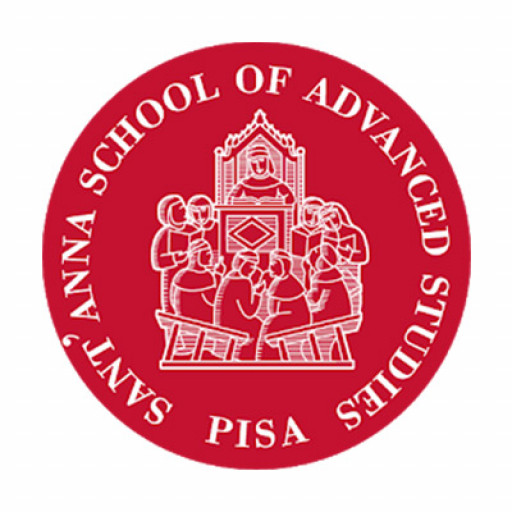Photos of university / #unizh
Description: The Bachelor of Science in Plant Science at the University of Zurich offers students an in-depth understanding of plant biology, ecology, and agriculture. This interdisciplinary program combines fundamental sciences such as biology, chemistry, and physics with specialized courses in plant morphology, physiology, genetics, and ecology, preparing students for careers in research, agriculture, conservation, and environmental management. Throughout the programme, students explore the diversity of plant species, their roles in ecosystems, and their importance to human life. The curriculum emphasizes practical skills through laboratory work, field studies, and independent research projects, fostering analytical thinking and problem-solving abilities. Students have opportunities to engage in cutting-edge research, attend seminars, and collaborate with faculty and industry partners. The program also addresses current challenges such as climate change, sustainable agriculture, and biodiversity conservation, encouraging innovative solutions. The University of Zurich’s Plant Science program aims to equip graduates with comprehensive knowledge and practical competencies to contribute effectively to scientific advancement and societal needs related to plants and their environments. Graduates are prepared for careers in research institutions, botanical gardens, environmental consulting, agriculture industries, and governmental agencies. The program emphasizes a global perspective, promoting understanding of plant sciences within a broader ecological and societal context, and fostering the skills necessary for lifelong learning and professional development in a rapidly evolving field.
- Current challenges in plant breeding
- Analysis of Ecological Data
- Scientific Writing Practice II
- Science & Policy: Building Political Support
- Niche Modeling
- Introduction to R
- Responsible Conduct in Research
- Research with biological material from abroad: International regulations and due diligence in research
- Pathways and Fluxes: Exploring the Plant Metabolic Network
- Leadership Skills for Postdocs
- Scientific Presentation Practice
- Project Management for Research
- Concepts in Evolutionary Biology (BIO 395)
- Filmmaking for Scientists
- Biology of Orchids
- Science & Policy: Communicating Science
- Next-Generation Sequencing 1 - Introductory Course: Assembly, Mapping, and Variant Calling (BIO 610)
- Next-Generation Sequencing 2 - Advanced Course: Transcriptomes, Variant Calling, and Biological Interpretation (BIO 634)
- Dealing with the Publication Process
- Genetic Diversity: Analysis
- System thinking
- QTL Analysis in Arabidopsis: Theory and Practical Applications
- Conservation Management: Field Course, Western Highlands of Scotland
- Advanced Data Management and Manipulation using R
- Introduction to R
- Alpine Ecology in Plant Life
Required Qualifications
- Applicants must hold a university Master's degree (or equivalent) before starting the Plant Sciences program. Please note that we do not accept degrees from Universities of Applied Sciences (Fachhochschulen).
- Applicants must have strong English skills.
There are two ways to apply
- Track I Application: File an application via the Life Science Zurich Graduate School
- Track II Application: Contact a PSC group leader directly to enquire about open PhD positions and then apply directly to group leader
Funding options for the Plant Science degree program at the University of Zurich include a variety of financial support mechanisms designed to assist students throughout their studies. Students enrolled in this program can apply for university scholarships, which are awarded based on academic achievement, social criteria, or financial need. The university offers merit-based scholarships that recognize high-performing students, as well as need-based grants aimed at supporting students from less privileged backgrounds. Additionally, students may be eligible for external funding sources such as Swiss government scholarships for international students or Erasmus+ mobility grants if participating in exchange programs.
Part-time employment is common among students seeking to finance their education, and the university provides resources and guidance to help locate suitable part-time jobs both on and off campus. Some students may also receive financial support from their home countries, especially international students who qualify for governmental funding schemes or family contributions. The university also collaborates with various organizations and research projects that offer stipends or funding opportunities for students involved in research activities related to plant science.
Further financial aid schemes include student loans, which can be obtained through Swiss financial institutions, and specific fellowships targeted at graduate students pursuing research degrees. Students are encouraged to explore all available options early in their studies to ensure sufficient financial planning. The university provides comprehensive advice and support through its financial aid office, assisting students in identifying suitable funding sources and preparing application materials. It is important for students to stay informed about deadlines and eligibility criteria for various funding opportunities to maximize their chances of receiving financial support. Overall, while studying Plant Science at the University of Zurich entails some costs, numerous funding avenues exist to facilitate access to quality education and support students financially throughout their academic journey.
Expenses
Living expenses depend very much on the individual student. These figures should therefore be regarded as a guideline only (in CHF):
| Rent incl. heating | 550 |
| Additional expenses (telephone, internet) | 200 |
| Meals | 400 |
| Insurance | 250 |
| Travel | 80 |
| Clothing, laundry, personal items | 70 |
| Leisure, spending money | 150 |
| Teaching materials | 50 |
| Total | 1,750 |
The expected minimum cost of living for students therefore comes to a total of CHF 1,750 per month.









